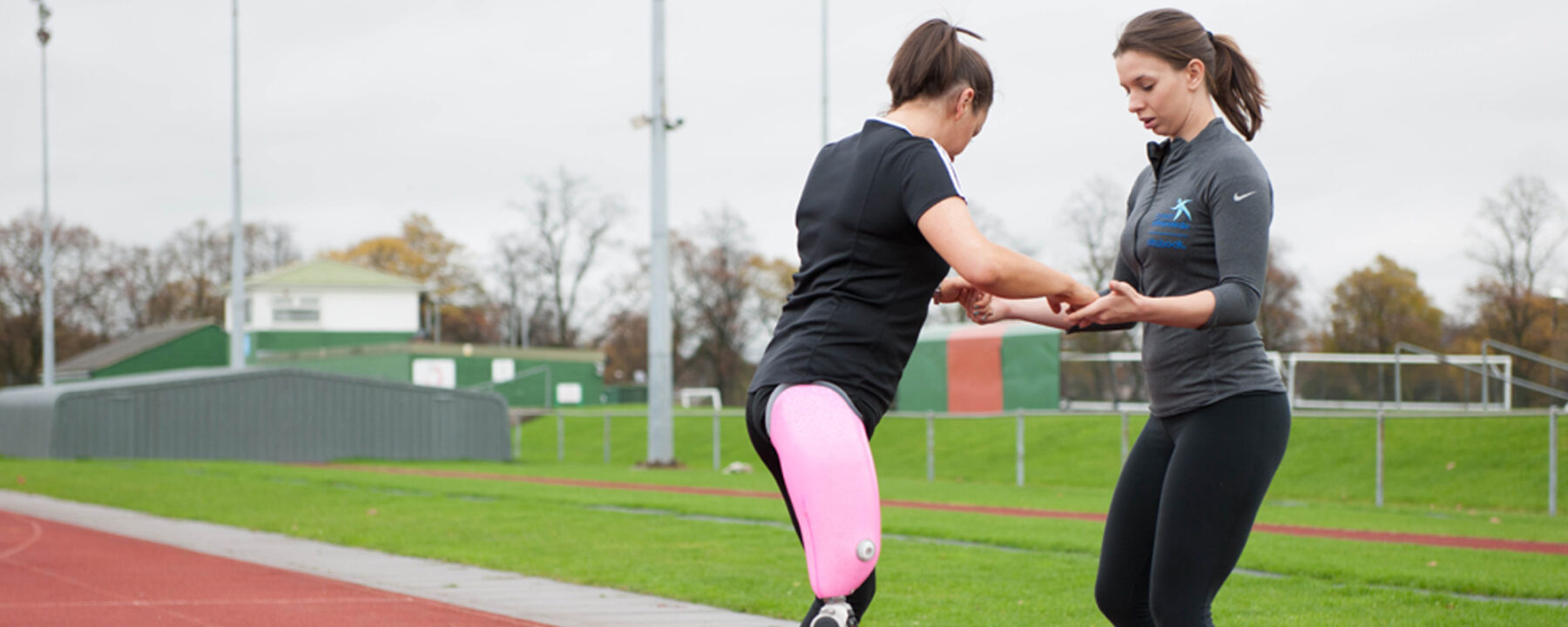
Physio Facts - Balance
Balance
Balance is your ability to maintain your body’s centre of gravity over its base of support. Day to day our bodies make tiny adjustments to our muscles and how we stand or move in order to keep our balance. It’s not something we have to actively think about - we just stay up. But when you lose a limb, be it arm or leg, it makes balance that little bit harder and you have to actively think about it.
You maintain balance by a combination of sight, touch and wait for it...your ears! It’s called the vestibular system. Your ears have what is essentially tiny spirit levels in them that send information back to the brain about where you are in space.
When you lose a leg you lose the touch element of balance. Your brain is no longer getting feedback from your foot touching the floor and your base of support has changed, making it difficult to balance. With upper limb loss it’s more a case of a change in weight distribution and using your arms as a counter balance when you’re reaching or find yourself away from your base of support. But like with all new skills, you can learn to adapt and your body adjusts to its new normal, finding a new equilibrium.
In the clinic we use something called the ‘Berg Balance Scale’ to test your balance. It consists of a series of tasks we ask you to perform which we score you on. This score will give us an idea of your fall risk due to lack of balance and we can then work on improving it.
To break it down super simply, we start off with just standing on both feet without any support. For some this is difficult as they’ve been so used to crutches or sitting in a wheelchair. As confidence grows with this first stage, we progress the task. The next step would be to close your eyes, making it harder for your brain to know how balanced you are. If you’re a pro with the eyes closed, we add some unstable surfaces, like a thick exercise mat or a wobble cushion. Then you want to start moving the upper body while maintaining that new found balance. Simple catch and throw games can help take your mind off the fear of falling and let your body do its thing. There is nothing worse than being tense and rigid as this makes it harder to balance and move.
Things like side stepping, standing on one leg and stepping out with the other as if mimicking the numbers on a clock, walking the plank or doing some sort of amateur line dancing can really help you gain confidence and skill. We also use a Wii Fit. Now, you would think computer games where you become a penguin trying to catch fish, where you send balls down a hole or where you’re in a giant water bubble going down a ravine is just for kids but let me assure you, the biggest kids of all are grown-ups when given the opportunity!
The Wii seems to bring out the competitive spirit in everyone and soon those that would find themselves gripping onto a stick for dear life are yelling at the screen and having a great time. It’s sneaky physio that’s fun and the Wii can give great feedback on the percentage of weight distribution and the line of centre of gravity. We also have a pressure plate for that sort of thing but it’s nowhere near as fun as beating your PB ski slalom time!
Please email Beth with any questions you may have - bethl@dorset-ortho.com
